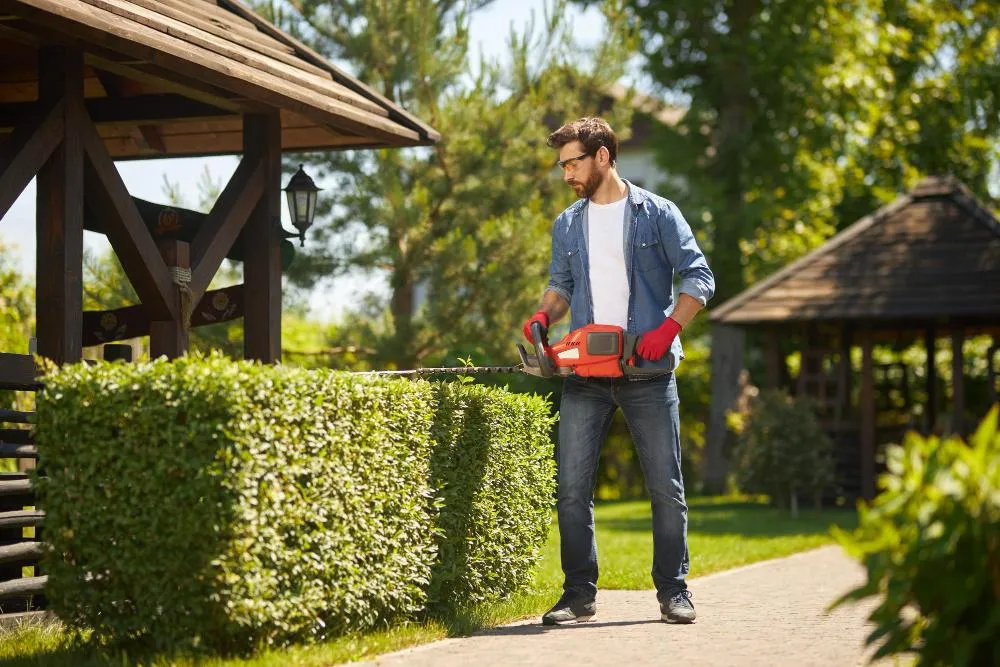
Top Low‑Maintenance Landscaping Ideas for Utah Homeowners
Every Utah homeowner wants a beautiful yard—but not everyone wants to spend weekends mowing, weeding, and watering. With Utah’s dry climate and demanding seasons, low-maintenance landscaping isn’t just smart—it’s essential. In this guide, you’ll learn what low-maintenance landscaping really means, the best ideas for Utah’s unique environment, how to get started, and expert answers to the most common homeowner questions.
What Does Low‑Maintenance Landscaping Mean in Utah?
Low-maintenance landscaping focuses on minimizing water usage, reducing upkeep, and building a yard that thrives with minimal effort—especially in Utah’s arid conditions. These designs emphasize function, beauty, and sustainability.
Here are the core principles of low-maintenance landscaping:
Drought-tolerant and native plants
Minimal or no lawn areas
Mulch or decorative rock for weed control
Smart irrigation systems
Hardscape elements like patios or gravel paths
Strategic plant grouping and soil preparation
Minimal seasonal maintenance
By focusing on these areas, homeowners in Utah can save water, reduce time spent on yard work, and still enjoy a stunning outdoor space year-round.
Step-by-Step Guide to Creating a Low‑Maintenance Landscape
To help you get started, here’s a practical breakdown of the essential steps:
1. Assess Your Yard’s Layout
Begin by evaluating sunlight, soil type, slope, and current plant life. Planning your layout around natural conditions reduces the need for ongoing corrections or plant replacements.
2. Select Drought-Tolerant and Native Plants
Utah has excellent options for resilient, beautiful plants that require little watering or care. Look for plants such as:
Russian sage
Lavender
Blue fescue
Penstemon
Sedum
Creeping thyme
Juniper
Yarrow
These species are naturally adapted to Utah’s climate and require minimal maintenance once established.
3. Reduce or Eliminate Lawn Areas
Traditional grass lawns are water-intensive and require constant mowing. Instead, replace high-maintenance turf with alternatives such as:
Artificial turf
Rock gardens
Gravel with drought-tolerant plants
Low-growing ground covers like creeping thyme
This change alone can save thousands of gallons of water per season.
4. Install Efficient Irrigation
A smart irrigation system can drastically cut down on water waste and time spent hand-watering. Use drip irrigation and smart controllers to deliver water exactly where and when it’s needed.
5. Use Mulch or Decorative Rock
Mulch and rock not only improve the look of your yard, they also help:
Retain soil moisture
Suppress weeds
Regulate soil temperature
Reduce erosion
Choose options like bark mulch, rubber mulch, or decorative gravel depending on the aesthetic you want.
6. Incorporate Hardscaping
Hardscaping adds structure and functionality with almost no maintenance. Consider:
Paver patios
Gravel pathways
Fire pits
Retaining walls
Raised garden beds
These features enhance curb appeal and reduce the amount of space that needs watering or trimming.
7. Design With Simplicity in Mind
Keep the plant variety manageable and avoid overcomplicating your layout. Group plants with similar water and sunlight needs, and aim for symmetry and clean lines to reduce visual and physical clutter.
Frequently Asked Questions
What are the best low-maintenance plants for Utah?
Look for perennials and native species like Russian sage, lavender, blue fescue, penstemon, sedum, creeping thyme, and juniper. These plants are drought-resistant and thrive in local conditions.Is xeriscaping a good option for my home?
Yes. Xeriscaping is perfect for Utah homes because it emphasizes water conservation, native plants, and minimal lawn areas. It’s both sustainable and stylish.How does mulch help reduce yard work?
Mulch suppresses weeds, locks in soil moisture, and improves soil health. Organic mulch can even reduce the need for fertilizing and replanting.What’s the easiest way to eliminate lawn?
Replace turf with artificial grass, gravel beds, or low-growing ground cover. These options cut out mowing and reduce your water bill.Can I have a beautiful yard without a lawn?
Absolutely. A mix of plants, hardscape, rock, and mulch can create a vibrant, elegant landscape that’s easy to care for and still makes a strong visual impact.
Conclusion and Call to Action
Low-maintenance landscaping is about making smart choices—not sacrificing beauty. By focusing on native plants, functional design, and water-wise features, you can enjoy a stunning yard that doesn’t drain your time or resources.
Ready to simplify your outdoor space? Contact your local landscaping experts in Utah County to get a personalized design plan that suits your space, your budget, and your lifestyle.